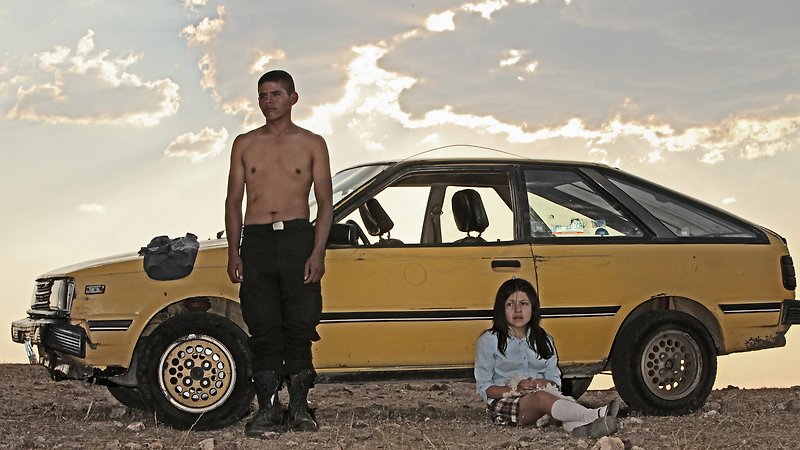Mexican Amat Escalante’s controversial, terrifying picture of innocents drawn into an inferno of drug-gang violence won him the Best Director laurel at Cannes. “Winningly provocative and always compelling.” — Time Out

I’m not sorry I saw Heli, but the squeamish should know what they’re in for.
Heli 2013
Expert consensus in Cannes was that Amat Escalante’s terrifying picture of innocents drawn into an inferno of drug-gang violence was too brutal to find favour with the Spielberg-headed jury. In the event, Escalante was awarded the Best Director prize.
“Law, what is it good for? Not much in Mexican filmmaker Amat Escalante’s third feature Heli, a portrait of a poor, hardworking family screwed once by crime and once again for luck by the authorities in smalltown Mexico…
Winningly provocative and always compelling… What threatens to descend into an arthouse horror show of physical indignity piled onto psychological torture in the end becomes something more sad, sombre and even, in a crooked way, oddly reassuring…
Escalante’s control of his storytelling is exemplary; his gently inquisitive, sometimes teasing camerawork and his desire to linger on people and places and find some hope in the natural world are much-needed counterpoints to the harshness of the film’s more in-your-face gory details.
What makes Heli more interesting than just a stark picture of a community in a mess are its nuanced suggestions of how evil at the top seeps down to corrupt at the lowest levels of society. Small mistakes can kickstart events which are horrific when there’s no moral or institutional certainty to rely on. There’s also a strong strain of empathy running through the film and even a last-minute reminder of how families can endure the most terrible events.” — Dave Calhoun, Time Out London
“Squint, and the title makes more sense. Shut your eyes entirely to its horrors and you’ll really miss out.” — Catherine Shouard, The Guardian